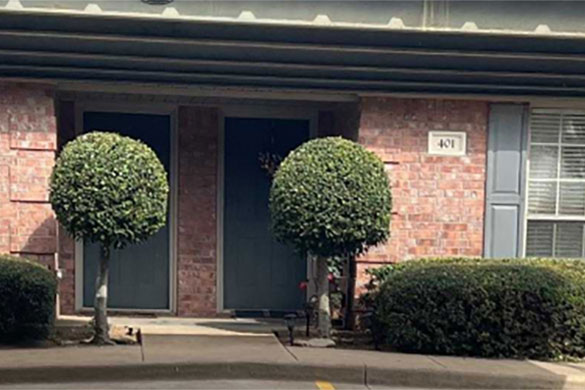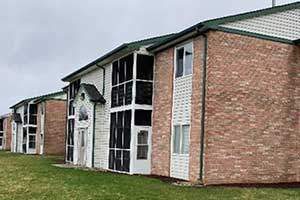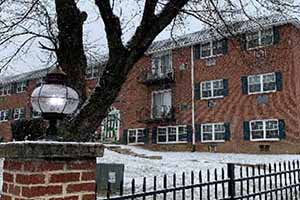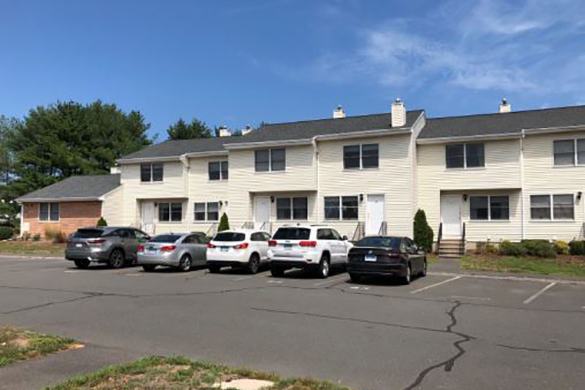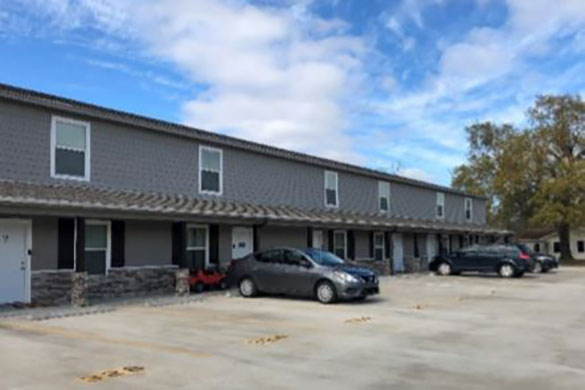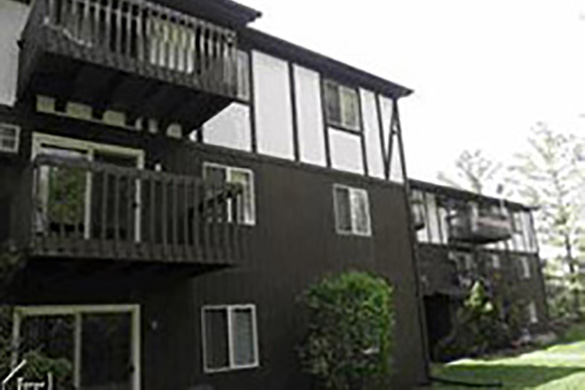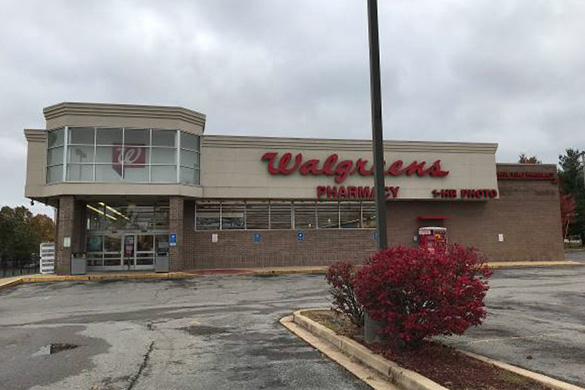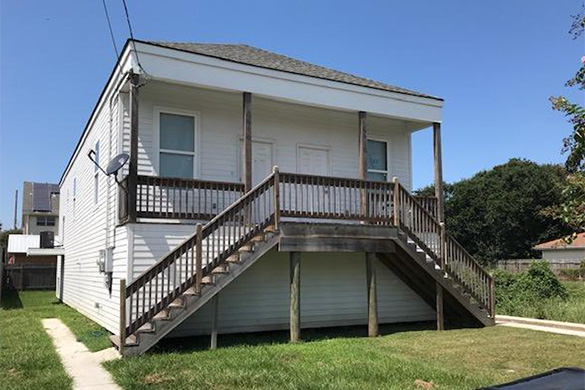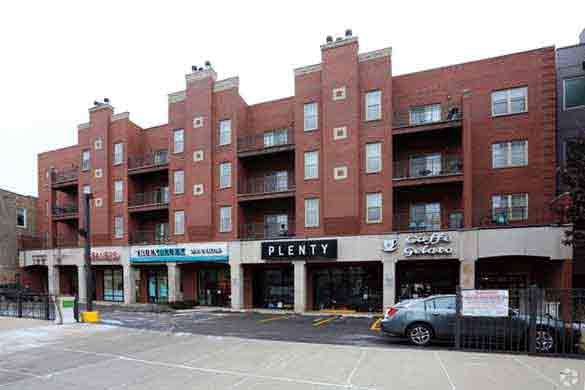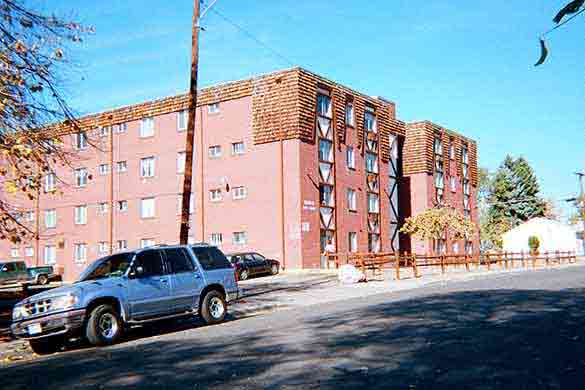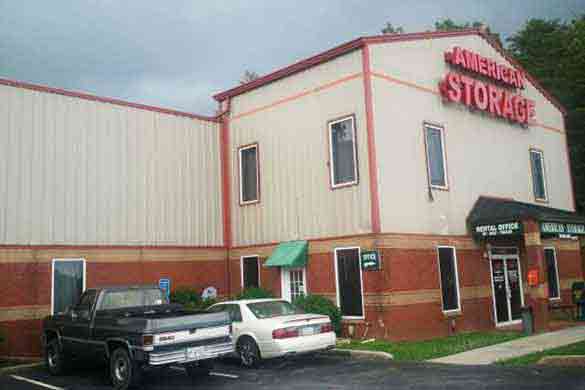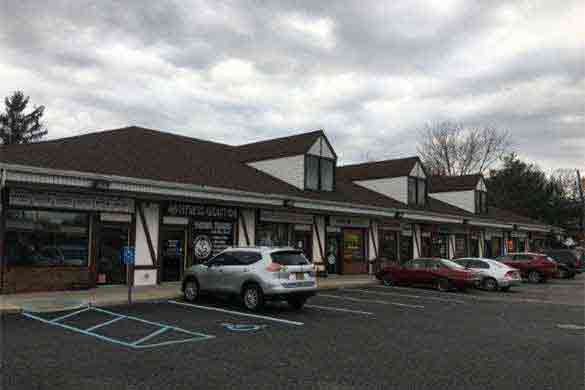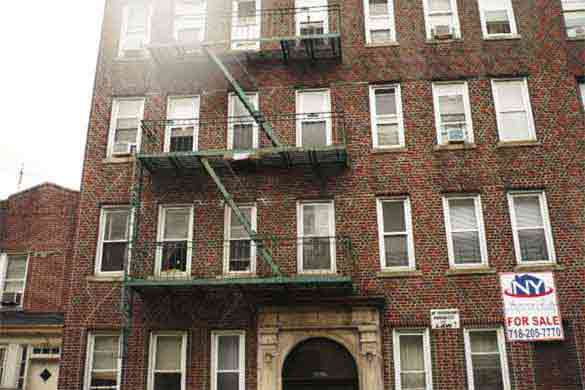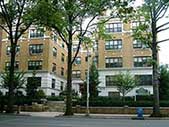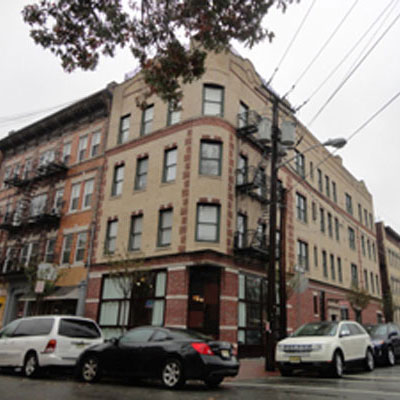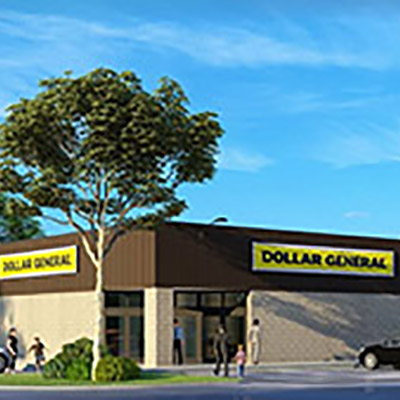Commercial Mortgage Loans
Select Commercial is focused on giving our customers the best commercial real estate loan solutions for each client’s needs. We are always updating our site with the latest information concerning commercial mortgages. We offer great terms on multifamily loans which continues to be our most popular loan type. We analyze the borrower's current situation to determine the best course of action moving forward. See today's commercial mortgage rates for all of the loan types we serve.
Commercial Real Estate Loan Rates - Rates updated March 5th, 2026
| Loan Product | Rates (start as low as) | LTV | |
|---|---|---|---|
| Apartment Loan Rates (Over $6,000,000) | 4.95% | Up to 80% | Get Free Quote |
| Apartment Loan Rates (Under $6,000,000) | 5.35% | Up to 80% | Get Free Quote |
| Business Real Estate Loan Rates | 5.81% | Up to 90% | Get Free Quote |
| Commercial Mortgage Rates | 6.01% | Up to 75% | Get Free Quote |
Latest Expert Insights from Stephen A. Sobin
Stephen A. Sobin, the president of Select Commercial Funding LLC, is a renowned expert in the field of multifamily financing. His insights and perspectives are regularly sought by leading industry publications. Here are his latest contributions that highlight his deep understanding of the multifamily financing landscape and his commitment to providing clear, insightful analysis on key industry issues.
Navigating Opportunity, Risk as 2025 Winds Down
In an article for Commercial Property Executive titled "Navigating Opportunity, Risk as 2025 Winds Down", Sobin explains as we head into the final stretch of 2025, the commercial real estate industry stands at a pivotal moment. After several years of upheaval—from pandemic disruptions to aggressive Federal Reserve rate hikes and lasting shifts in how people live and work—the sector is entering a new phase.
Why Lower Rates Haven't Fixed Commercial Real Estate
In an article for Wealth Management titled "Why Lower Rates Haven't Fixed Commercial Real Estate", Sobin explains that even as the Federal Reserve has begun cutting rates and borrowing costs should be falling, the commercial real estate sector remains locked in a frustrating stalemate. For high-net-worth investors trying to time the market, he emphasizes that understanding this disconnect requires looking beyond the headlines.
Why the Fed Rate Cut’s a Game Changer for CRE
In an article featured in Multi-Housing News, Stephen Sobin highlighted that after months of speculation and market anticipation, the Federal Reserve finally pulled the trigger last week, cutting the federal funds rate by 25 basis points to 4.00 to 4.25 percent. read the full article.
Inflation's Current Impact on Apartment
In an article featured in Multi-Housing News, Sobin explains how commercial mortgage rates continue to challenge investors, with elevated inflation depressing real estate market activity. Read the full article.
Will the July Jobs Report Pressure the Fed to Act?
Sobin noted in Multi-Housing News that unemployment hit a three-year high and job creation slowed significantly, factors that could push the Fed to reconsider future rate hikes. Read the full article.
Persistent Inflation and Its Effects on CRE
In an article featured in Multi-Housing News, Stephen Sobin highlighted that while inflation is still a challenge for the Federal Reserve, there are many positive signs for the commercial real estate industry. The headline Consumer Price Index rose 3.2 percent for the year ended Feb. 29, a figure 20 basis points lower than the Dec. 31, 2023, rate. read the full article.
Commercial Spotlight: Mid-Atlantic Region In this four-state powerhouse, smaller metros are thriving.
In a feature in Scotsman Guide, the Mid-Atlantic Region's real estate dynamics are explored, highlighting its resilience and growth amidst the pandemic.
Stephen Sobin of Select Commercial Funding LLC shared insights on the New York market's allure and the challenges buyers face. He noted the shift from primary urban areas to tertiary markets due to evolving preferences and financial conditions. For a deeper dive into Sobin's analysis, read the full article.
What the New Jobs Report Means for CRE
In an article titled "What the New Jobs Report Means for CRE" in Commercial Property Executive, Stephen Sobin shared his perspective on the latest jobs report and its implications for the Commercial Real Estate (CRE) sector. He highlighted the challenges posed by high interest rates and the prevailing uncertainty in the market. Sobin remarked, "Sellers aren’t selling, buyers aren’t buying... Everyone is waiting because no one knows what to expect." For a detailed analysis and more of Sobin's insights, read the full article.
Decoding "Junk Fees" in Rental Housing
In another latest contribution to Multi-Housing News, Sobin provided expert commentary in an article titled "What's Next for Junk Fees? The Industry Weighs In". He clarified the difference between legitimate fees collected for various third-party services and so-called "junk fees". Sobin emphasized the importance of borrowers understanding their rights in negotiating all loan terms and the obligation of lenders to disclose all fees.
Understanding the Impact of Federal Reserve's Decisions
In a recent article titled "How the Fed's Pause on Interest Rates Impacts Multifamily" published by Multi-Housing News, Sobin shared his expert insights on the Federal Reserve's decision to pause interest rate hikes. He accurately predicted that the Fed would not raise rates in June, citing recent bank failures and lingering concerns about a potential recession.
Stay tuned for more expert insights from Stephen A. Sobin on the evolving multifamily financing landscape.
Our Reviews
Frequently Asked Questions
The Federal Reserve’s Federal Open Markets Committee cut the federal funds rate by 50 basis points at its September 18, 2024, meeting. This was the first rate cut since March 2020, when the Fed began a long series of rate hikes to curb the high rate of inflation. The Fed’s decision shows that they believe that inflation is under control and moving into the 2% range that the Fed has set as its goal. The Federal Reserve took this decisive action to prevent further declines in the labor market. The Fed has further hinted at further cuts at its two remaining meetings in 2024, followed by additional cuts in 2025. This rate cut, along with possible future rate cuts, may create positive investor demand for commercial real estate, and may provide aid for commercial mortgage customers, as well as consumers in general. We must caution, however, that the Federal Reserve cuts affect short term interest rates directly and long-term rates only indirectly. The Prime Rate, which is a short-term rate, dropped from 8.50% to 8.00% with the Fed’s recent action. However, most commercial mortgage rates are based on the 5-, 7-, or 10-year treasury rates, and not the Prime Rate. We have seen these treasury rates actually rise since the Fed took its action. On September 18th, the 10-year treasury was roughly 3.70%. Three weeks later, this rate had jumped to 4.03%. Investors are still concerned about future inflation and are adopting a wait and see attitude.
We don’t expect the multifamily sector to be affected by these recent closures unless the banking crisis expands and causes other banks to be closed down. These banks were affected by business lending in the tech and cryptocurrency sectors. Multifamily lending for banks has overall been healthy and we don’t expect that to change any time soon. However, we are seeing lending activity slow down as rates have risen due to the Fed’s policy of raising rates to combat inflation. Rate increases have caused many multifamily properties to experience cash flow problems.
Inflation fears, high interest rates, and the prospect of recession have slowed the pace of the commercial real estate market considerably. Some property types are outperforming others. Apartment buildings in desirable neighborhoods are performing well, as owners have been able to raise rents and keep up with rising interest rates. Multifamily properties in smaller and less desirable areas, or areas where unemployment is rising, are not performing as well, as rent increases are harder to implement. In the office sector, only medical office buildings are generating lender interest. General office properties have underperformed the market as a result of the work from home policies established during the Covid-19 pandemic. Office demand is unlikely to return to pre-Covid levels making the office sector extremely hard to navigate right now. In the retail sector, essential service businesses, such as grocery stores and pharmacies, are performing well, while traditional brick and mortar retailers are still feeling the effects of Covid-19 and the competition from online retailers. Many malls are experiencing record high vacancy levels, and some are being repositioned for other purposes. In the industrial sector, we are seeing strong demand for warehouse and distribution space to accommodate the online retailers. Industrial space in urban markets and close to transportation are performing very well. We expect to see sales prices for underperforming properties to drop in 2023 as investors gravitate to better positioned properties.
On March 10, 2023, Silicon Valley Bank was placed into receivership by the FDIC. A few days later, New York based Signature Bank was closed. While these banks were involved in lending to the tech and cryptocurrency sectors, other banks are on the watch list. The Federal Reserve’s policy of raising short term interest rates to combat inflation has put many banks under pressure as banks traditionally hold a lot of short term treasury debt, which has gone down in value as rates have risen. Banks are forced to sell this debt at a loss when depositors withdraw funds from the bank.
In order to combat rapidly rising inflation, in 2022 the Federal Reserve aggressively raised short term interest in multiple 75 basis point increments. At the beginning of 2022, the yield on the 30 day treasury was 0.05%. As we near the end of 2022, the yield is 3.94%. The Federal Reserve has indicated that they will continue to raise short term interest rates in 2023 although at a slower pace and in smaller increments. Commercial mortgage rates are typically priced over the 10 year treasury notes. The longer notes are more market driven and less subject to Federal Reserve action. The 10 year treasury at the end of 2022 is in the range of 3.50% - 3.60%, and commercial mortgage rates are in the mid to high 5% range. The fact that long term rates are lower than short term rates indicates that economists expect the economy to slip into a recession. We will watch these trends closely during 2023.
Lending Nationwide from $1,500,000+
Free Commercial Property Loan Review
- No Application Fees
- No Processing Fees
- 24 hour Pre-Approvals
- No Cost & No Obligation
- Simple Application Process
- Excellent Rates and Terms
- Professional Service
Commercial Real Estate Loan Types
Commercial Mortgage Press Releases
Commercial Mortgage Loan
Apartment Loan
$2,472,000 Akron, Ohio
Commercial Mortgage Loan
Retail Loan
$4,788,000 Frisco, TX
Commercial Mortgage Loan
Retail Loan
$4,000,000 Pelham, AL
Commercial Mortgage Loan
Apartment Loan
$2,300,000 Chicago, IL
Commercial Mortgage Loan
Self Storage Loan
$6,700,000 Victoria, TX
Commercial Mortgage Loan
Apartment Loan
$6,827,000 Westchester, PA
Commercial Mortgage Loan
Apartment Loan
$2,776,491 Chicago, IL
Commercial Mortgage Loan
Apartment Loan
$1,500,000 Idaho Falls, ID
Commercial Mortgage Loan
Apartment Loan
$5,999,000 Valparaiso, IN
Commercial Mortgage Loan
NNN Lease Loan
$2,782,000 Goodlettesville, TN
Commercial Mortgage Loan
Apartment Loan
$8,345,000 Montclair, New Jersey
Commercial Mortgage Loan
Apartment Loan
$5,932,000 Nederland, Texas
Commercial Mortgage Loan
Apartment Building Loan
$4,620,000 Crystal Lake, IL
Commercial Mortgage Loan
Apartment Loan
$3,778,000 Metairie, LA
Commercial Mortgage Loan
Apartment Loan
$2,812,000 Duluth, MN
Commercial Mortgage Loan
Apartment Loan
$4,400,000 Manhattan, MT
Commercial Mortgage Loan
Industrial Building Loan
$3,300,000 Tomball, TX
Commercial Mortgage Loan
Mixed Use Loan
$4,500,000 Chicago, IL
Recent Closings
Select Commercial now offers C-PACE financing
C-PACE (Commercial Property Assessed Clean Energy) financing is a specialized commercial real estate solution that allows property owners to fund qualified energy-efficient and resiliency improvements and repay the cost as a special assessment on their property tax bill. Unlike conventional loans, C-PACE is typically non-recourse, is secured to the property rather than the owner, can be transferred if the property is sold, and often offers 10 to 30 year repayment terms that match the useful life of the upgrades. This structure helps preserve working capital, improve cash flow when energy savings exceed annual payments, and increase building value while supporting ESG goals and current code requirements. Learn more on our dedicated C-PACE financing page.
Fannie Mae Multifamily Loans
Fannie Mae multifamily loans provide mortgage capital for conventional, affordable housing, cooperatives, senior housing, student housing, manufactured housing communities and mobile home parks nationwide. The Fannie Mae apartment loan program offers many distinct advantages over traditional bank programs, including long-term fixed rates up to 30 years, high LTV ratios up to 80%, and nonrecourse financing (no personal guarantee to the principals). Fannie Mae Multifamily provides long term permanent mortgage loans for the purchase or refinance (cash-out OK) of apartment properties nationwide. Fannie Mae Multifamily loans can be used to finance apartment buildings with at least 5 residential units. No more than 20 percent of net rentable area can be leased out to commercial tenants. Fannie Mae Multifamily is an industry leader in apartment building loans and their terms are incredibly difficult to beat. Check out today's Fannie Mae multifamily loan rates now or see commercial mortgage rates for all the loan types we serve.
Apartment Building Loans
For the most accurate and up-to-date information on multifamily rates, rental market trends, and investment opportunities, select your state from the dropdown menu below:
Multifamily financing continues to be a major source of our commercial mortgage lending activities. A strong rental market and low vacancies allow us to be very aggressively priced on apartment building loans. We have a large array of lending programs to cover almost every possible scenario – whether you own an urban hi-rise apartment or a suburban garden apartment, we have the best deals for investment property loans in the market. We service large companies that are looking for large loans, as well as small owners that only own one building. Everyone's needs are different, and we will work with you to find the best commercial mortgage lender to custom tailor an apartment loan that suits your individual needs. We lend nationwide and our minimum loan size is $1,500,000. We will also consider credit that is not perfect. Check out today's multifamily loan rates now or see commercial mortgage rates for all the loan types we serve. We provide apartment loans throughout most of the United States.
Commercial Mortgage Loans
For the most accurate and up-to-date information on rates, rental market trends, and investment opportunities, select your state from the dropdown menu below:
Commercial mortgage loans consist of both owner-occupied and investor commercial mortgage loans. We provide commercial mortgage purchase loans and commercial mortgage refinancing. Owner occupied properties are those properties where the owner of the property uses the commercial property for his/her own business. Some examples include: medical offices, retail stores, motels and special-use properties like gas stations. Investor properties are those properties where the owner has purchased the property for investment and rents out the property to one or multiple tenants. Some examples include: office buildings, retail centers and warehouse properties. Regardless of which type of property you own, we have the right commercial mortgage loan, and the right commercial mortgage lender to suit your individual needs. For more information, please give us a call at 1-877-548-9454, or fill out our Free Loan Request form. Also, don't forget to check out today's commercial mortgage rates. We provide commercial real estate loans throughout most of the United States.
FHA Multifamily Loan
FHA multifamily loans offer some of the best financing options to multifamily real estate investors and developers. While the FHA (Federal Housing Administration) doesn't directly make these loans, they do insure FHA multifamily loans made by third party lenders to real estate investors. The third party lender will process the loan in accordance with the FHA guidelines and will underwrite the loan in order to provide the insurance. FHA multifamily loan programs were instituted to help investors purchase and refinance multifamily properties. While many people think that the FHA will only insure affordable housing, the truth is that FHA multifamily loan programs offer a great option for investors looking to finance all kinds of multifamily properties across the United States. The FHA 223(f) multifamily loan insurance program is one of the best financing options in the market for multifamily investors. Check out today's FHA multifamily loan rates now or see commercial mortgage rates for all the loan types we serve.
HUD Multifamily Loan
HUD multifamily loans offer some of the best financing options to multifamily real estate investors and developers. While HUD (Department of Housing and Urban Development) doesn't directly make these loans, they do insure HUD multifamily loans made by third party lenders to real estate investors. The third party lender will process the loan in accordance with the HUD guidelines and will underwrite the loan in order to provide the insurance. HUD multifamily loan programs were instituted to help investors purchase and refinance multifamily properties. While many people think that HUD will only insure affordable housing, HUD multifamily loan programs offer a great option for investors looking to finance all kinds of multifamily properties across the United States. The HUD 223(f) multifamily loan insurance program is one of the best financing options in the market for multifamily investors. Check out today's HUD multifamily loan rates now or see commercial mortgage rates for all the loan types we serve.
CMBS Loans
CMBS loans are another major source of mortgage capital for multifamily investors. CMBS loans, otherwise known as commercial mortgage backed security loans, market through Wall Street investment banks. CMBS lenders make individual CMBS loans to borrowers which are then packaged and sold to investors as securities. CMBS loans provide interest rate yield to their investors while contributing liquidity to the capital markets. This liquidity in the markets means lower commercial mortgage rates to borrowers. Borrowers are well served when there are multiple sources of capital in the market. There are many reasons for commercial real estate investors to consider CMBS loans. CMBS loans are available to a wide array of borrowers including those who may be turned down by traditional lenders. They also have less strict net worth and liquidity requirements than other lenders. Check out today's CMBS loan rates now or see commercial mortgage rates for all the loan types we serve.
Freddie Mac SBL
The Freddie Mac SBL multifamily loan program offers many unique and beneficial features for apartment purchases and refinances, with a minimum loan size of $1,500,000. The loan application process is simple and streamlined. As an example, tax returns for the borrower and the property are not required. Loans typically close in 45 days and the program has much lower costs than other government or agency programs.
Other Types of Commercial Mortgages
At Select Commercial, we offer commercial mortgage loans for all types of commercial properties. We lend on investor properties that are rented out to others, such as, apartment buildings, office buildings, and retail shopping centers, as well as owner-user properties used by a self-employed business owner such as, retail stores, gas stations, medical offices, and motels. Every different property type requires a specialized analysis of the property and the borrower. We have extensive experience lending on all different types of properties.
Car Wash Loans – we finance self-service and full-service car washes, as well as many other automotive related properties, such as repair shops, auto-body shops, service centers, tire shops and muffler shops.
Gas Station Loans – we have extensive experience lending on branded and unbranded gas stations.
Mobile Home Park Loans – we have special lending programs for mobile home parks, manufactured housing communities, trailer parks and recreational vehicle parks.
Self-Storage Loans – we finance all types of storage facilities, including: indoor climate-controlled facilities, traditional outdoor facilities, RV and vehicle storage facilities and boat storage properties nationwide.
NNN Lease Loans – we have special expertise in financing single-tenant NNN lease properties, including: drugstore chains, dollar stores, national restaurants and big box retailers.
Hotel Loans – we finance full service nationally flagged hotels nationwide.
Motel Loans – we finance flagged and unflagged motels, including seasonal or vacation area properties.
1031 Exchange Financing - we specialize in providing funds to help investors perform 1031 Exchanges by allowing them to swap an existing property with a new (and often larger) replacement property.
Underlying Co-op Loans – we provide underlying loans on cooperative buildings in major urban markets. We do not finance individual units, but provide the underlying loan for the co-op corporation.
CMBS Loans – Commercial Mortgage Backed Security Loans also known as CMBS loans are pooled together in a package with many like kind loans and sold to investors as bonds.
C-PACE Financing – we arrange Commercial Property Assessed Clean Energy (C-PACE) financing to fund energy-efficient and resiliency upgrades, repaid over the long term as a special assessment on the property tax bill.
Feature Articles We've Written For Commercial Real Estate Publications
The Ups and Downs of the Multifamily Capital Markets
With the beginning of the new year, there is still much uncertainty in the national commercial real estate market. Higher borrowing costs stalled many commercial real estate transactions in the second half of last year, and this trend is expected to continue throughout the first half of 2023. Additionally, many sellers still refuse to bring down their asking prices in line with a rising rate environment. Investors are anxiously hoping for a respite in Fed interest rate hikes this year....
Read Full Article
Author: Stephen Sobin - President at Select Commercial Funding LLC

Finding the Right Apartment Loan
The past year has been a record period for U.S. multifamily housing performance. According to real estate analytics company Yardi Matrix, the national average asking rent in June 2022 increased $19 to $1,706, a new all-time high. Rent growth was slowing but had jumped by an average of 13.7% year over year at that time. In addition, the average asking rent for single- family built-to-rent units rose to a record high of $2,071, Yardi reported. Occupancy rates across the country reached 97.6% in the first quarter of the year, according to a RealPage analysis....
Read Full Article
Author: Daniel Sobin - Vice President at Select Commercial Funding LLC
Which GSE Is Right for You?
There are many different types of apartment properties: market rate apartments, affordable housing, student housing, senior housing, manufactured home parks, mobile home parks, etc. Fannie Mae and Freddie Mac, both Government Sponsored Entities, are two of the largest lenders financing these types of apartment properties. Which GSE is most appropriate for your deal? Which GSE has the best rates today? How has the latest rate increase from the Federal Reserve affected agency lending?...
Read Full Article
Author: Stephen Sobin - President at Select Commercial Funding LLC

How Mortgage Rate Increases are Affecting Commercial Real Estate Investment
In May 2022, the Federal Reserve’s Federal Open Markets Committee raised its Federal Funds rate by 50 basis points. In June, the Fed again raised the Federal Funds rate by another 75 basis points. And in mid-July, the Federal Reserve raised rates another 75 basis points. Analysts anticipate that the Fed will continue to raise rates several more times this year in an effort to fight inflation...
Read Full Article
Author: Stephen Sobin - President at Select Commercial Funding LLC
Multifamily Construction Loans Help Developers Finish the Job
An experienced commercial real estate developer was planning on building a 300-unit apartment complex in the Chicago suburbs. As he modeled the project, he considered two options for financing it. The first option was to raise all the equity needed to finance the deal, a route that would tie up much if not all of his personal capital. The second option was to take out a multifamily construction loan to finance the development. After speaking with a commercial mortgage broker, the developer opted to take out the construction loan...
Read Full Article
Author: Daniel Sobin - Vice President at Select Commercial Funding LLC
Things To Know About Commercial Real Estate Financing
What you need to know about obtaining an apartment loan and apartment loan rates:
Select Commercial specializes in financing apartment loans and has excellent apartment loan rates for purchase or refinance. Many clients ask us for advice when it comes to understanding apartment loan fundamentals, especially as it pertains to valuing apartment properties. We start by looking at the apartment rent roll to see if the units are all occupied (vacancy is usually a red flag) and to see if the units are rented at market levels. Underwriting an apartment loan requires income or cash flow and looking at the rent roll is the first place to start. Next, apartment lenders look at the operating statement. An operating statement will show actual rent collections and all expenses. The difference is the apartment’s net cash flow. The net cash flow will determine the size of the apartment loan. Apartment lenders look for solid and stable income when underwriting an apartment loan. Apartment properties that have high vacancy rates or display un-stabilized cash flow will probably be better with an apartment bridge loan until the property qualifies for a standard apartment loan. Also very important to apartment lenders is the location and condition of the property. Lenders prefer properties in urban and suburban areas and will take a hard look at apartment loan requests in rural or tertiary markets. Apartment properties in good or excellent condition are preferred. Properties in need of renovations or displaying deferred maintenance will be highly scrutinized.
Select Commercial can help you with NNN Lease Loans.
We are often asked questions from our clients about investing in Net Lease or NNN properties. Investors love the idea of investing in a property and not having to be responsible for property expenses. We often tell our clients interested in NNN lease properties to, first and foremost, look for high rated credit tenants. Lenders are not bullish on retail right now. However, if you find a highly rated credit tenant with a corporately guaranteed lease (such as Walgreens, CVS, Dollar General, etc.), great rates and terms are available. Secondly, it is crucial to look for properties with longer leases. No lender is interested in financing a property with a short-term lease. We typically like to see at least 10 years remaining on the primary lease. Lastly, scrutinize the location of the property. You are much more likely to get great rates and terms in highly rated markets than in secondary or tertiary markets. Please contact us for any specific questions regarding Credit Tenant Lease Loans.
What you need to know about obtaining a commercial real estate loan for an owner-occupied property.
Owner-occupied properties are properties that are used to house an owner’s business. Examples include medical offices, restaurants, general offices, retail stores, motels, etc. Commercial real estate loans are loans that are used to finance the acquisition of these properties or refinance these properties (often to free up equity for other business purposes). The self-employed borrowers that own these properties need to work with lenders who understand and have experience lending to small businesses. Many commercial mortgage lenders do not focus on these properties as they lack the necessary experience working with small business owners. When commercial real estate lenders look at an investment property, they look at the rents collected, the expenses necessary to run the property, and calculate the net operating income. This NOI is used to determine the property’s ability to cover the mortgage debt. With properties that are used by the owner, the calculations are different. The lender must understand the entire business operation to determine what income and expenses are attributable to the property and to the business separately. The underlying business must be healthy to take on the debt of a commercial real estate loan. In addition to analyzing the income, lenders also need to understand the owner occupant’s credit scores and ratings. The stronger the credit scores, the less risky the loan. Commercial mortgage rates will often be determined by analyzing both the business’s income and the credit of the applicant. At Select Commercial, we have over 30 years of commercial real estate financing experience lending to small business owners. Check out our low commercial real estate loan rates and use our commercial mortgage calculator to calculate monthly principal and interest.
Select Commercial can assist you with your 1031 Exchange Financing needs!
Ordinarily, when an investor sells an investment property, the profit realized is subject to capital gains taxes. However, if the investor exchanges the property for another property, the IRS will allow the investor to defer capital gains taxes. This process is called a 1031 Tax Free Exchange. Select Commercial specializes in helping investors utilizing a 1031 Exchange obtain commercial mortgage financing to facilitate the new purchase. Please contact us for more details on 1031 Tax Free Exchange Financing. (Always consult your tax advisor for specific advice when it comes to your tax situation).
CMBS loans are one of the most popular types of commercial real estate loans in the market.
CMBS stands for commercial mortgage backed security. As such, these loans are pooled together in a package with many like kind loans and sold to investors as bonds. CMBS loans typically have softer requirements than many traditional lenders. For example, problem borrowers with low net worth/ liquidity or credit issues can often qualify for CMBS loans. These loans are typically offered as fixed rate terms for 5, 7, or 10 years. CMBS loans can be amortized over 30 years and often can qualify for interest only terms. In addition, these loans are non-recourse and assumable.









